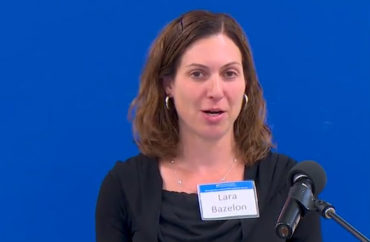- 3 in 4 top universities do not guarantee presumption of innocence in campus proceedings.
- 9 in 10 top universities do not guarantee meaningful cross-examination in cases of alleged sexual misconduct.
- None of the surveyed institutions guarantee all the due process protections required under the new, proposed Title IX regulations.
- Polling shows students overwhelmingly want due process protections, but universities fail to deliver.
PHILADELPHIA, Dec. 18, 2018 — America’s top universities fail to provide students accused of campus misconduct with fair procedures, according to a new report from the Foundation for Individual Rights in Education. As the Department of Education considers public comments on newly proposed regulations governing Title IX enforcement until Jan. 28, “Spotlight on Due Process 2018” highlights the need for change.
READ THE REPORT: SPOTLIGHT ON DUE PROCESS 2018 | AUDIO CLIPS FOR MEDIA USE
“Students accused of serious campus offenses routinely face life-altering punishment without a meaningful opportunity to defend themselves,” said FIRE’s Susan Kruth, lead author of the report. “Universities need to provide basic procedural protections that help ensure accurate outcomes, and right now they overwhelmingly do not.”
FIRE examined policies at the top 53 universities in the country to see how many of 10 fundamental procedural safeguards they guarantee students, including the presumption of innocence, the right to impartial fact-finders, and the right to appeal. Of the 53 universities studied, 47 receive a D or F grade, meaning that they guarantee no more than 4 of the 10 elements rated.
Most institutions maintain one set of policies for charges of sexual misconduct and another for all other non-academic misconduct, such as theft or physical assault. Notably, of the 15 institutions that received an F rating for their sexual misconduct policies, 11 have been sued by accused students over the lack of fair procedure.
Although universities do not guarantee their students fair disciplinary procedures, it’s clear students overwhelmingly want them. Each element in FIRE’s report is supported by a majority of college students surveyed by FIRE this year about their views on campus due process protections:
- 85 percent of students think their accused classmates should be presumed innocent until proven guilty, but only 26 percent of America’s top universities guarantee students that protection.
- Although three-quarters of students support cross-examination, only 1 in 10 institutions guarantees students a meaningful opportunity to cross-examine witnesses.
- 8 in 10 students think students accused of breaking the law should be allowed to have a lawyer present in campus judicial proceedings, but only one institution out of 53 surveyed allows attorneys to participate without significant limitations.
This landscape may shift if the Department of Education’s proposed regulations are enacted. 87 percent of institutions receive a D or F for their failure to protect the due process rights of students accused of sexual misconduct, but implementing the proposed regulations would raise surveyed universities’ grades to a C or better.
“Of the 104 policies rated, not a single one receives an A grade. This shows just how far removed students have been from real justice in campus proceedings — and how much work is still left to do,” said Samantha Harris, FIRE vice president of procedural advocacy. “By adopting the ten elements of fair process laid out in FIRE’s report, universities can ensure that their judicial process protects the interests of everyone involved.”
“Spotlight on Due Process 2018” can be read in full on FIRE’s website. For more information about FIRE’s student survey, see “Proceeding Accordingly: What Students Think about Due Process on Campus.”
The Foundation for Individual Rights in Education (FIRE) is a nonpartisan, nonprofit organization dedicated to defending and sustaining the individual rights of students and faculty members at America’s colleges and universities. These rights include freedom of speech, freedom of association, due process, legal equality, religious liberty, and sanctity of conscience — the essential qualities of liberty.

 ‘Even more than I bargained for’When Lara Bazelon got a referral from a fellow attorney to assist an African-American student facing expulsion for the alleged sexual assault of a white woman, the law professor was skeptical.It was January, and Bazelon was heading up a new pro-bono law clinic focusing on “Racial Justice” at the University of San Francisco Law School. It was partnering with the San Francisco public defender’s office to assist minorities in legal trouble.
‘Even more than I bargained for’When Lara Bazelon got a referral from a fellow attorney to assist an African-American student facing expulsion for the alleged sexual assault of a white woman, the law professor was skeptical.It was January, and Bazelon was heading up a new pro-bono law clinic focusing on “Racial Justice” at the University of San Francisco Law School. It was partnering with the San Francisco public defender’s office to assist minorities in legal trouble.


